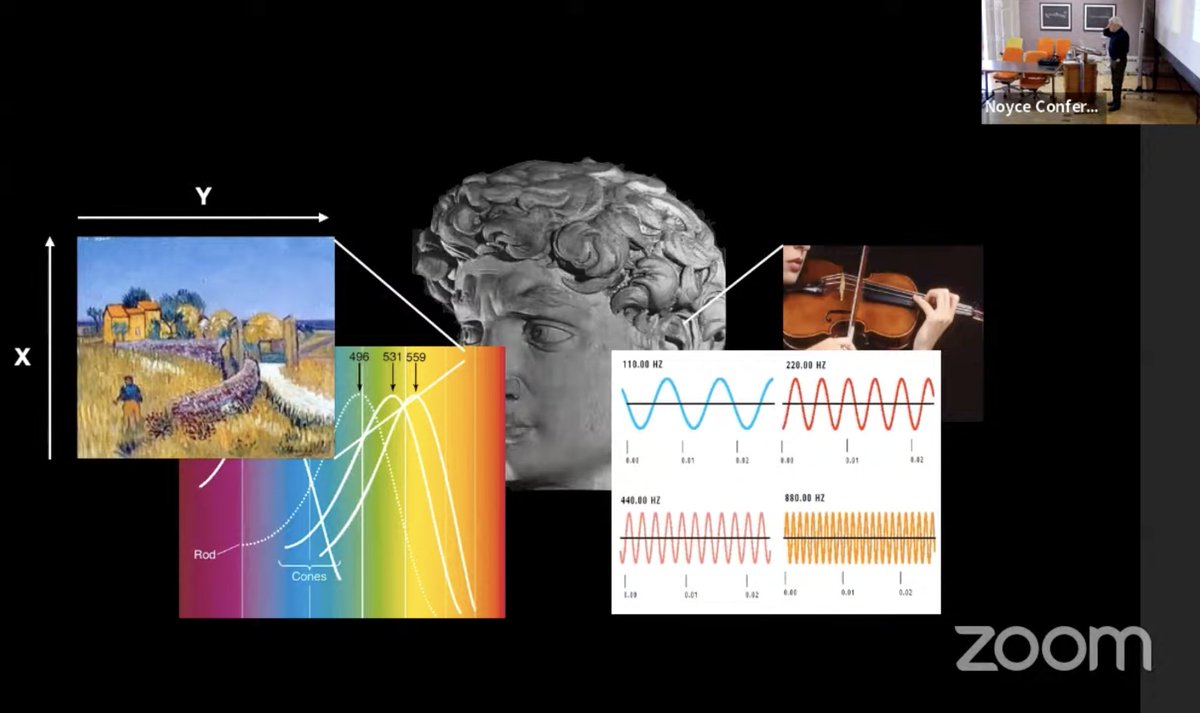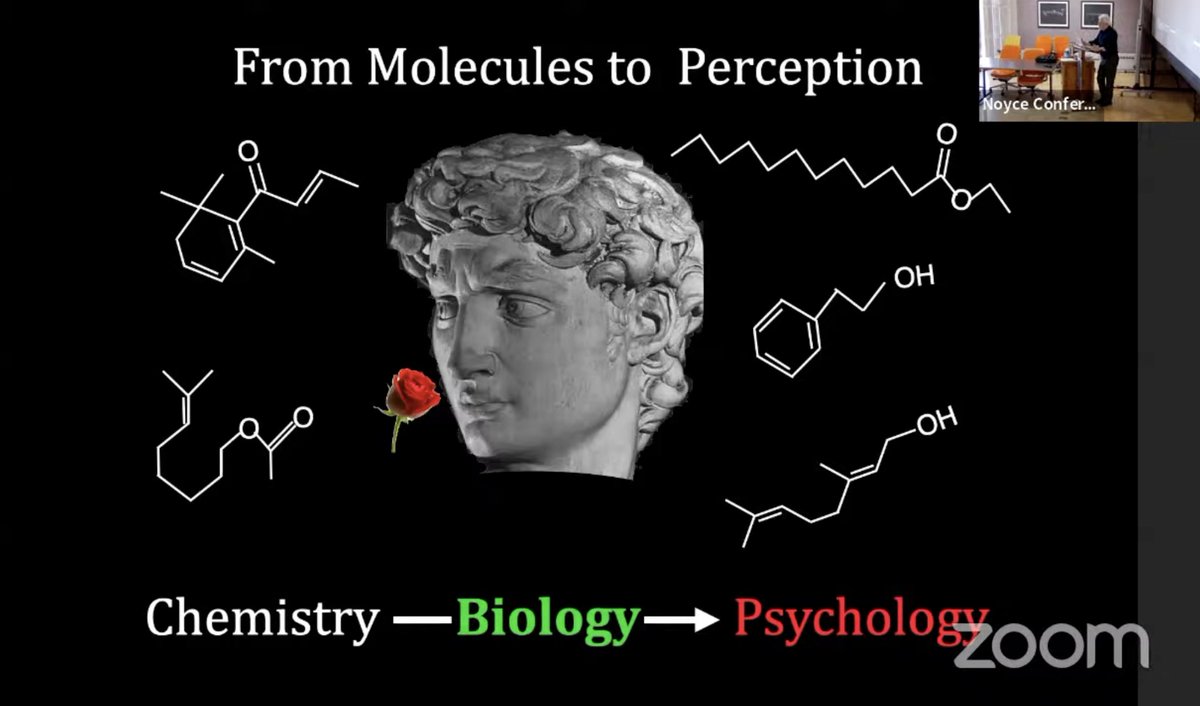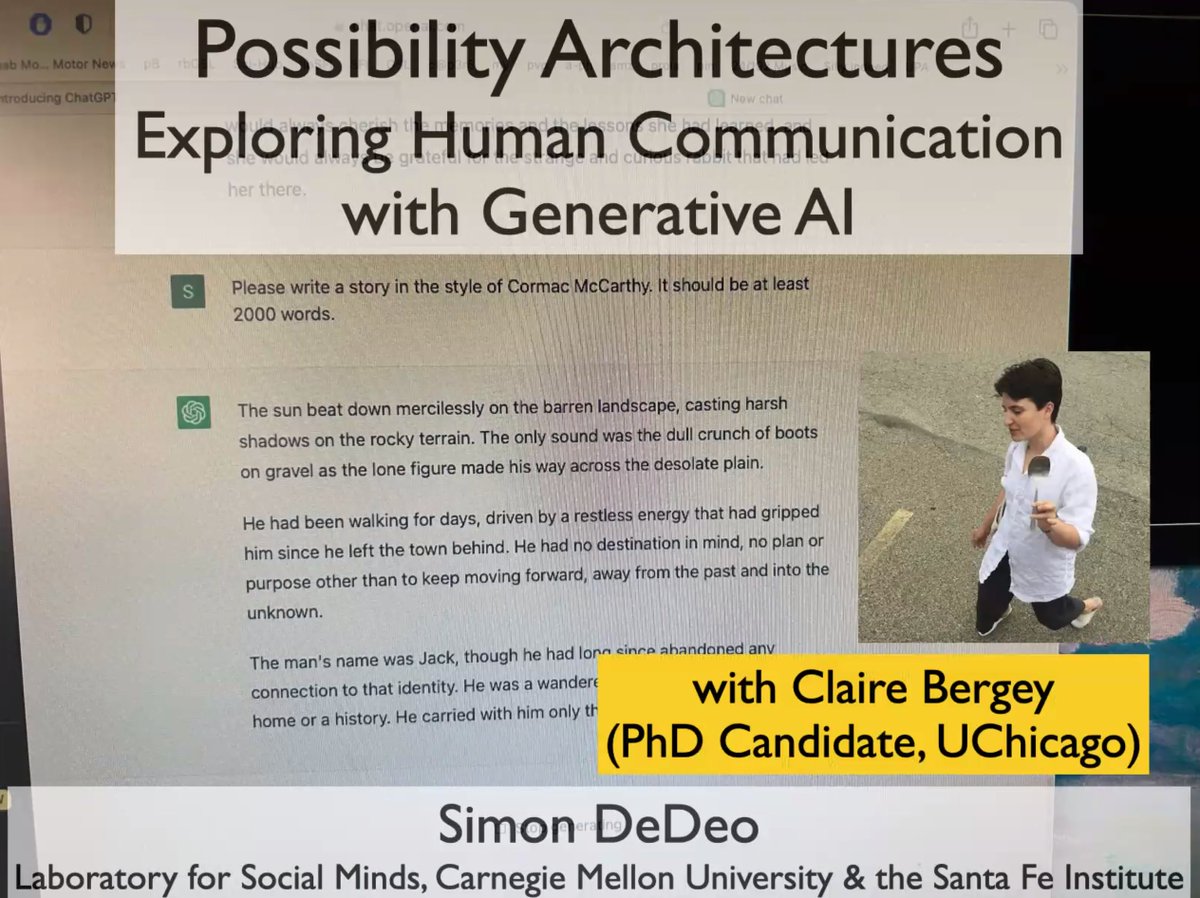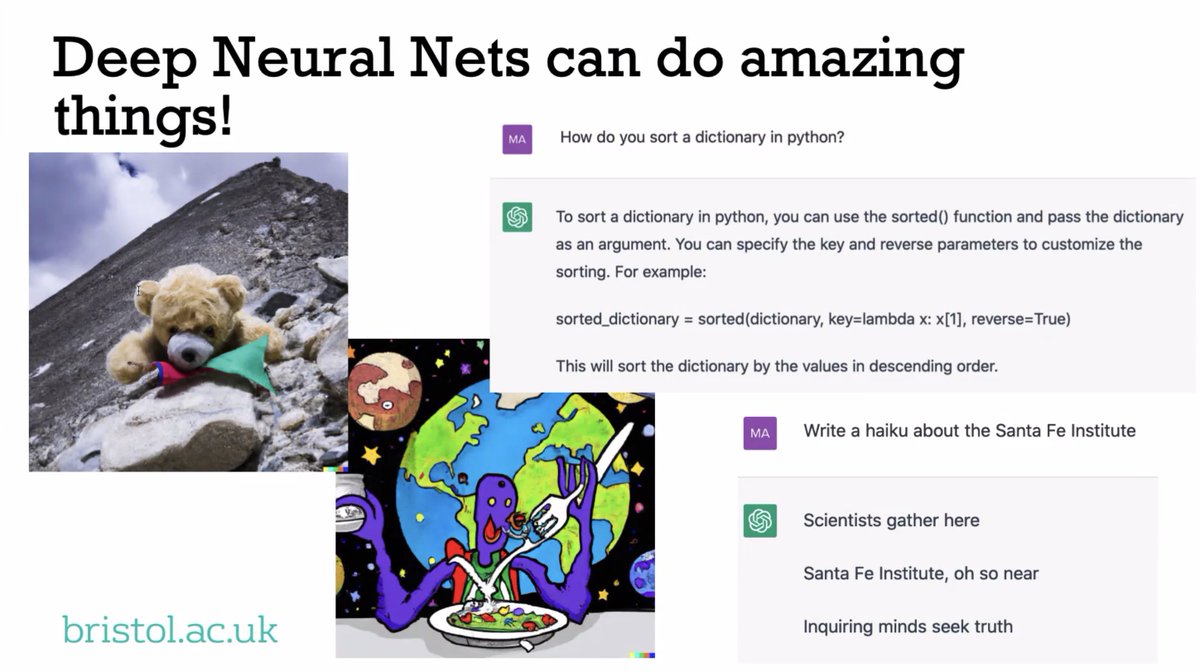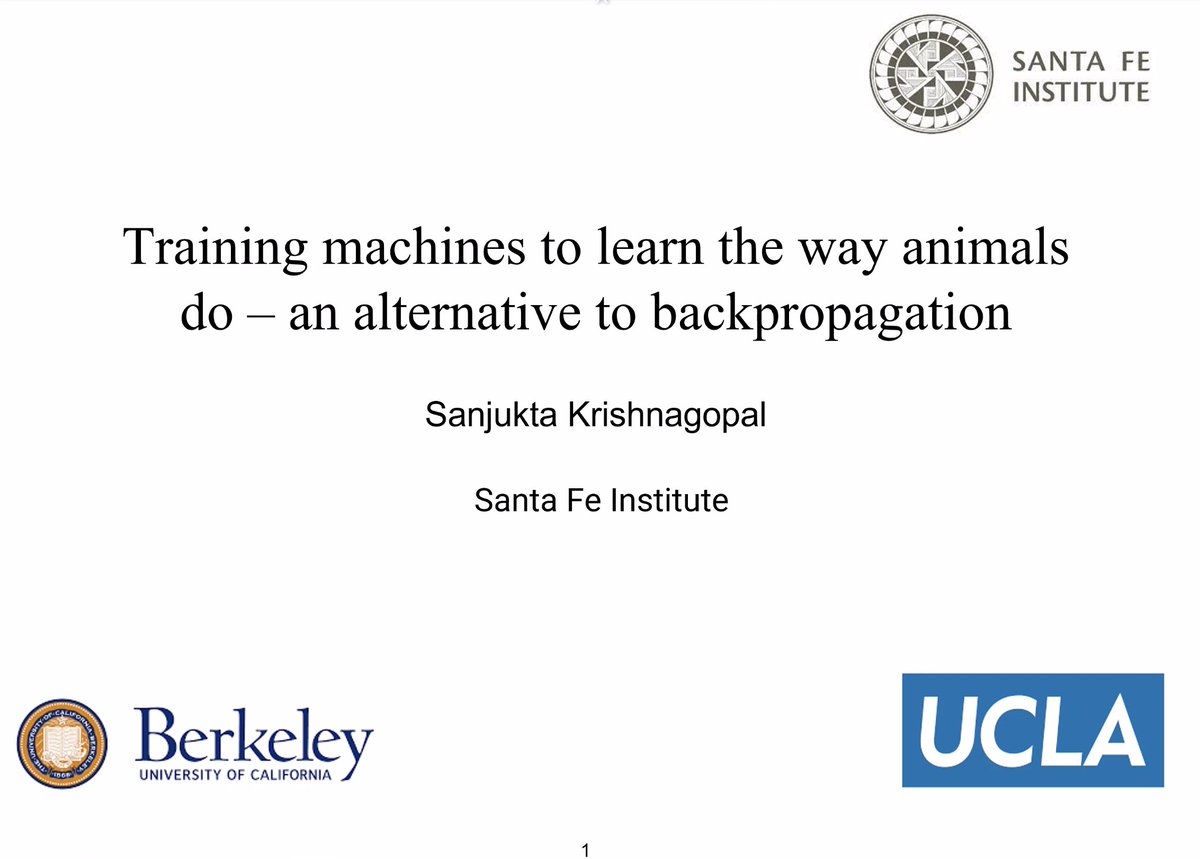"#Emergence, #SelfOrganization, & #Complexity"
🧵 In today's SFI Seminar, Visiting Scholar @cgershen presents the second in his series of talks on core concepts in #ComplexSystems science, streaming now:

🧵 In today's SFI Seminar, Visiting Scholar @cgershen presents the second in his series of talks on core concepts in #ComplexSystems science, streaming now:
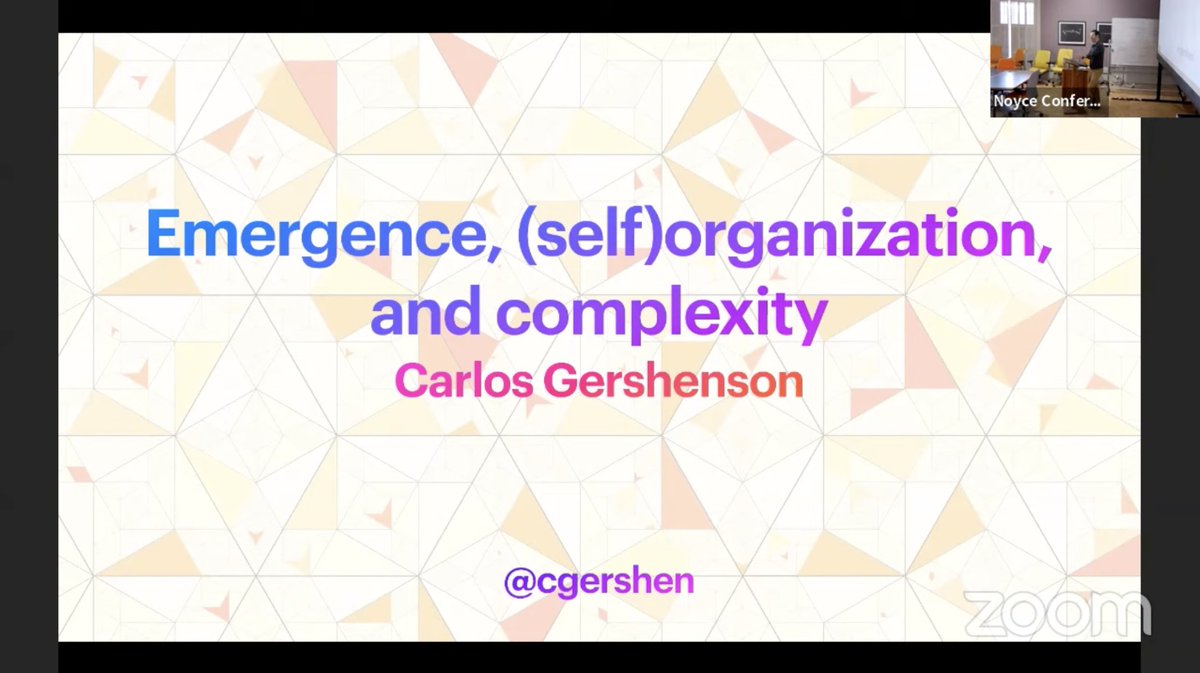
"In high school #physics class you are taught that with the initial conditions of a system, you can predict its future states. In #complexity, this is not so...it means #reductionism is not appropriate, #Platonism is not appropriate..."
- @cgershen

- @cgershen


"You can see a layer of circuits computing something. What is it computing? Itself. In a 248x248 array, you can program the #GameOfLife inside the game of life. Computers allow us to explore #Complexity, and it's no surprise complexity became a science in the 1980s."
- @cgershen



- @cgershen




@cgershen "The components of the cells are not #alive, but the cells ARE alive. Where does the life come from? Where does our MIND come from? It seems #life and #mind are not properly defined, but there are other examples where it becomes clear what we mean by #emergence."
- @cgershen

- @cgershen


"The same systems can be considered self-organizing or self-DISorganizing, by the same observer. It depends."
@Cgershenson showing research into #traffic lights, #AutonomousVehicles, and #PublicTransit:



@Cgershenson showing research into #traffic lights, #AutonomousVehicles, and #PublicTransit:

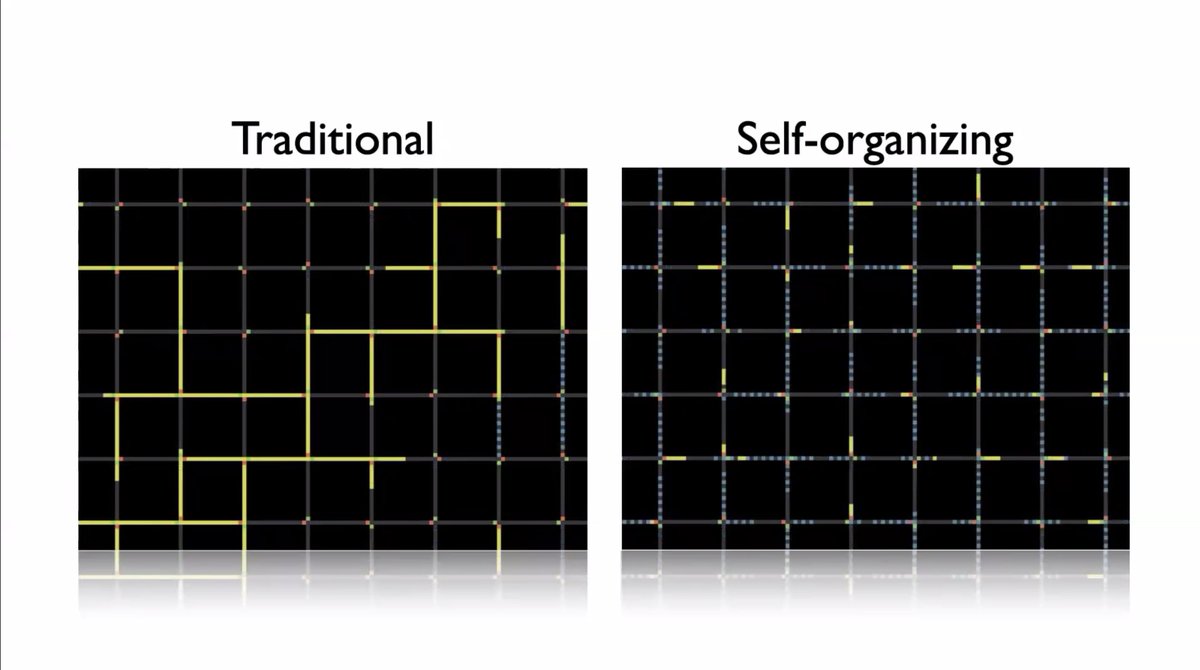


Building on #ClaudeShannon to find information measures of complexity, emergence, self-organization, #homeostasis, and #autopoiesis:
"Complexity can be seen as a balance between emergence and self-organization."
- @cgershen
#OpenAccess paper link:
arxiv.org/abs/1304.1842


"Complexity can be seen as a balance between emergence and self-organization."
- @cgershen
#OpenAccess paper link:
arxiv.org/abs/1304.1842



@cgershen "15 years ago, I wrote this book. I asked, what do you think will be the future of #complexity? There were more or less evenly-distributed three camps: one group said it's an established #science; one said it's a #protoscience; some said it's just a bunch of methods."
- @cgershen
- @cgershen

• • •
Missing some Tweet in this thread? You can try to
force a refresh



